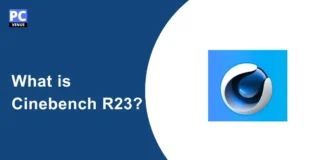We often forget about Aspect Ratio in visual media, but it’s a key concept that decides how we see things.
It is a numerical representation that defines images’ and videos’ relative width and height, determining how they fit on our screen.
Think of aspect ratio as the number that determines whether you’re watching a wide, cinematic movie or looking at a square Instagram picture.
Understanding aspect ratio is like unlocking the secret code to presenting and consuming content in its optimal form.
What is the Aspect Ratio?
Aspect ratio is the ratio of a video’s width to height, often expressed as a pair of numbers like 16:9 or 4:3. It determines the video’s width and how it fits on your screen.
Commonly Used Aspect Ratio
| Social Media Platform | Standard Aspect Ratio(s) | Special Aspect Ratio(s) |
|---|---|---|
| YouTube | 16:9 for standard content | 9:16 for YouTube shorts or vertical videos |
| 1:1 and 16:9 | 9:16 for Stories | |
| TikTok | 9:16 (recommended) | N/A |
| Square: 1:1 Landscape: 1.91:1 Portrait: 4:5 For regular posts | 9:16 for Stories, Reels | |
| 16:9 | 9:16 for Stories | |
| X (Twitter), Thread App | 16:9 for landscape | 1:1 for square video |
Also Read:

The Most Common Aspect Ratios
Widescreen 16:9
The aspect ratio for widescreen videos is 16:9, which we see mainly on the web, like YouTube videos, OTT, and streaming services.

Full Screen 4:3
4:3 was the standard “fullscreen” aspect ratio. Camcorders and video cameras used this ratio before the 2000s, offering a slightly wider image than a square.

Vertical 9:16
9:16, which is essentially a 90-degree rotation of the 16:9 ratio, is the aspect ratio designed for vertical video, most commonly seen on smartphones. We get to see when we watch Instagram reels, YouTube shorts, and TikTok videos.

Square 1:1
The square video aspect ratio, known as 1:1, appears in posts on platforms like Instagram, Facebook, YouTube, and X (Twitter). These platforms often use square videos for posts.

Cinematic Full View 21:9
Filmmakers often use the ultra-widescreen cinematic aspect ratio of 21:9 or 2.33:1 to create a highly cinematic experience.

| Aspect Ratio | Common Use |
|---|---|
| 16:9 | Standard Widescreen |
| 9:16 | Vertical Videos (For Mobile/Smart Phones) |
| 1:1 | Square Videos (For Social media) |
| 4:3 | Standard Fullscreen |
| 21:9 | Ultra-Widescreen |
| 2.35:1 | Cinema Scope |
| 2.39:1 | Anamorphic |
| 16:10 | Computer Monitors |
| 3:2 | Some Digital Cameras |
| 5:4 | Older Computer Monitors |
| 3:4 | Portrait Photography |
| 8:10 | Some graphic design |
Ideal Aspect Ratios for Social Media Video Content
YouTube
YouTube videos typically use the 16:9 aspect ratio for regular content, which is the platform’s default and works on various devices. The 9:16 aspect ratio is employed to make YouTube shorts or vertical videos.
For Facebook videos, 1:1 and 16:9 aspect ratios are used, and for Stories, a 9:16 aspect ratio is used.
TikTok
The recommended aspect ratio for TikTok videos is 9:16, which is vertical and ideal for mobile viewing on the platform.
Instagram uses 1:1 for squre, 1.91:1 for landscape and 4:5 aspect ratio for Portrait or regular posts. Also a 9:16 aspect ratio for Stories and Reels, and a 16:16 aspect ratio for IGTV, depending on the direction and style of your video. You can use either 16:9 or 9:16.
For regular LinkedIn videos: Use the 16:9 aspect ratio, which is the standard widescreen format.
For LinkedIn Stories: Use the 9:16 aspect ratio, which is a vertical format suited for mobile viewing.
X (Twitter)
Regular Thread (tweets) use a ratio of 16:9 for landscape or 1:1 for square video and a ratio of 9:16 vertical for fleet mobile-friendly content.
Final Word
The aspect ratio is an essential element in visual media. Which defines the canvas on which images and videos are painted. It’s a technical detail and a creative tool filmmakers, photographers, and content creators use to convey mood, style, and impact.
Whether it’s the immersive widescreen of a blockbuster movie, the vertical allure of a TikTok video, or the square simplicity of an Instagram post, aspect ratios are the silent architects of our visual experiences.
As we navigate the diverse landscape of social media and multimedia platforms, knowing the right aspect ratio can make content stand out and connect with audiences.
FAQs
Why is aspect ratio important?
Aspect ratio is important because it determines the size of an image or video. It also affects how an image or video will be displayed on different devices.
Can I change the aspect ratio of an image or video?
Yes, you can adjust the aspect ratio, but it might require cutting or resizing the content, which can affect how it looks and its overall quality.
How does aspect ratio affect gaming?
The aspect ratio of a game can affect your experience. Widescreen proportions give you a wider view, making you feel more immersed, while fullscreen proportions can limit your view.
How do I find the aspect ratio of an image or video?
To determine the aspect ratio of a picture or video, you can use different tools like image editors, video editors, or online calculators.
Just divide the width by the height. For instance, a 1920×1080 video has a 16:9 aspect ratio because when you divide 1920 by 1080, you get 1.778, which is about the same as 16:9.
What is letterboxing and pillarboxing?
Letterboxing and pillarboxing are tricks we use when showing pictures or videos on screens that don’t match their shape.
– Letterboxing means adding black bars on the top and bottom to fit a wide screen.
– Pillarboxing is when black bars appear on the sides to fit a taller screen.
These bars help the picture or video fit nicely without getting stretched or cropped.




